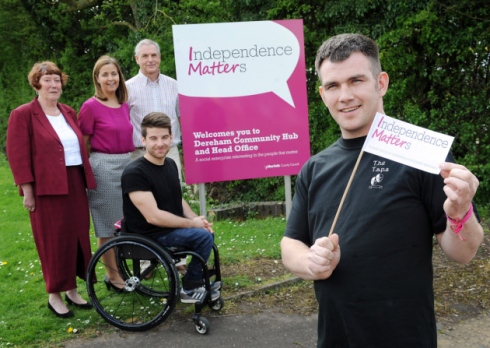Home
About Us
Identifying Heart, Lung, and Blood Disease-Causing Variants
by: TopGovernmentGrants Editorial StaffThe National Institutes of Health, otherwise known as NIH, is the agency operating within the United States Department of Health and Human Services that is fundamentally responsible for all of the country's biomedical and health-related research studies.
|
|
The programs and objectives of the NIH are tailored to contribute to the achievement of their agency mission, which is to "seek fundamental knowledge about the nature and behavior of living systems and the application of that knowledge to enhance health, lengthen life, and reduce the burdens of illness and disability."
In keeping with this mission, the National Institutes of Health has formed a partnership with the National Heart, Lung, and Blood Institute to establish a program that aims to Identify Heart, Lung, and Blood Disease-Causing Variants.
The Identifying Heart, Lung, and Blood Disease-Causing Variants Program aims to follow suit to research studies that intend to identify heart, lung, and blood disease-causing rare or lower frequency variants through the use of the extensive exome data that was discovered under the Recovery and Reinvestment Act of 2009.
The organizers of the program believe that this data will enable lung, heart and blood investigators, to focus on variants, genes, and pathways that could potentially lead them to a deeper and more thorough understanding of certain complex diseases.
(continued...)
Identifying Heart, Lung, and Blood Disease-Causing Variants
Page 2
About The Author
The TopGovernmentGrants Editorial Staff maintains one the most comprehensive Websites offering information on government grants and federal government programs. The staff also provides resources to other Websites with information on environmental grants and grants for youth programs. |
Additional Resources
category - Health Grants
National Institutes of Health funds the Improving Adherence to Treatment Regimens for HIV-Positive Adolescents and Young Adults
Learning Disabilities Innovation Hubs Program
Building a Medical Home for Multiply Diagnosed HIV positive Homeless Populations - Demonstration Sites Project
HRSA: Reducing Loss to Follow-up after Failure to Pass Newborn Hearing Screening
Follow @topgovtgrant
Social Entrepreneurship
Spotlight
Dereham Day Services Center Celebrates New “Social Enterprise” Model

Independence Matters, the largest council-owned community interest and day services company, celebrates the success of its new social enterprise model that boost its care and support services to more than 1,450 people across Norfolk.
